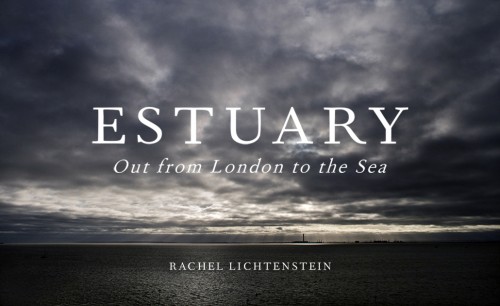Post
BOOK REVIEW | Estuary by Rachel Lichtenstein
6 Apr 2020
Estuary: Out from London to the Sea
By Rachel Lichtenstein
Reviewed by Jessica Cargill Thompson
Where does London end? The edge of the municipal boroughs? The M25? The tentacles of the Tube map? The continuous built-up area currently constrained by the Green Belt? The economic diaspora of the commuters and trading goods? Or perhaps it simply doesn't.
Rachel Lichtenstein's five-year labour of love Estuary is simultaneously an escape from London and inextricably part of it. For what is London – economically, historically, psychologically – without the Thames?
The Greater Thames Estuary, explains Lichtenstein, is officially an 800 nautical sq mile area starting around Tower Bridge and stretching to Clacton in Essex and Whitstable in Kent. However she chooses to begin her tale proper at Gravesend, channeling the spirit of Joseph Conrad, then take us downriver past the Essex Crowstone and Kent London Stone (the ceremonial obelisks marking the limits of the Port of London's jurisdiction), and out to the Principality of Sealand, the North Sea platform ruled over by (Prince) Michael Bates.
Amid this landscape/seascape of vast skies, wild marshland and cruel tides,
evocatively photographed by Simon Fowler, we meet a motley crew of characters: traditional Thames-barge skippers; the Fishwives Choir; mould-breaking nonagenarians; cruise- terminal officials; eccentric artists; cocklers; psychogeographers; and what's left of Canvey Island rock legends Dr Feelgood. Through their personal stories, each infuses the book, and this often overlooked extremity with a powerful sense of place.
But all this peels back to reveal a darker undercurrent of fear and isolation; treacherous sandbanks; looming container ships; family lost at sea. We visit the notorious 'Broomway' – the UK's most dangerous path; abandoned sea forts resonating with the ghosts of Word War Two; and countless shipwrecks, one so packed with explosives it could send a tidal wave to engulf the Isle of Sheppey. The estuary is a special place, but not one to be messed with.
Estuary is also Lichtenstein's personal journey – a landlubbing Southender finally venturing out onto the water she grew up by; an East-London chronicler branching out in her writing by returning to her roots. And it's a privilege to tag along.
Under her captaincy, the water shifts from a non-place – an empty expanse separating Kent and Essex, London and the sea – into its own county rich in life, history and shifting geographies. This is a joyous, though at times perilous, exploration that will have the restless urban reader itching to jump on the next train – or boat – eastwards for a taste of its salty air.
